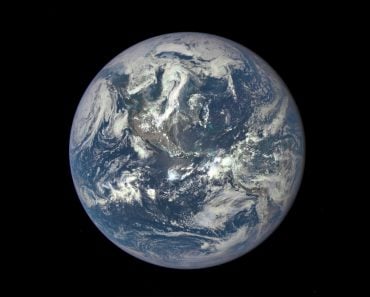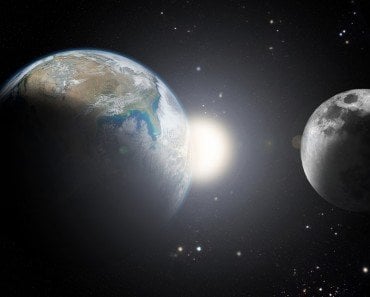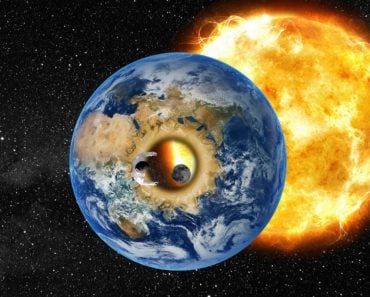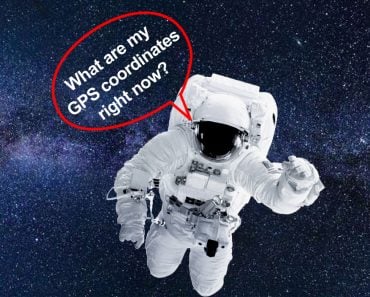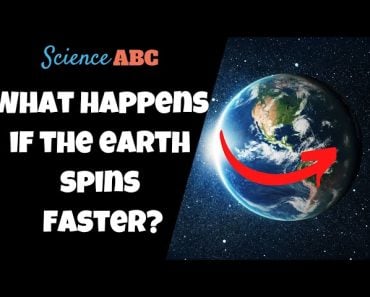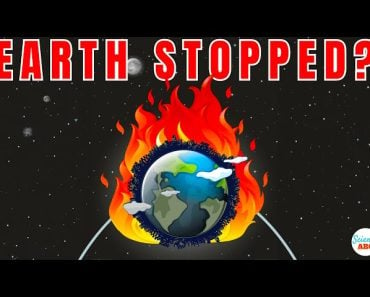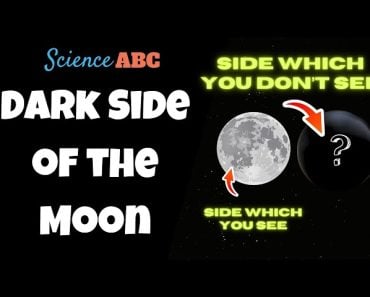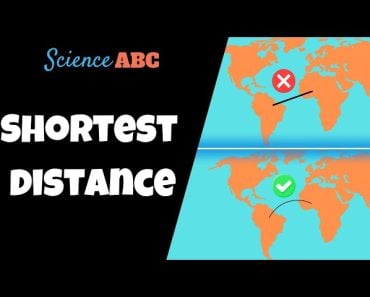Table of Contents (click to expand)
No, you would not fall off into space.
Right from the time when we, as children, begin to understand the most basic things in life, science pops up in one form or another to make us more confused (and fascinated!) by the world and everything in it. As ‘sensible’ adults, we accept many things as they are without asking questions, but for kids, everything they come across and observe is novel. Therefore, so are the queries that you, as their elders, have so much trouble explaining.
Talking about the ‘most commonly accepted things’ in nature, one of the first things that comes to mind is that Earth is round. We believe it, despite the fact that when we look around, we don’t see see people standing at impossible angles, holding onto something to avoid getting thrown into the void of space, or tumbling end over end. If we did see that, then it would provide us with visually convincing, daily-life proof of the rotundity of Earth.
Come to think of it, what would happen if the Earth were a flat disk instead of slightly oval-shaped? What would life be like? And if you ever happened to stroll to the edge, would you fall off into space?
Recommended Video for you:
Earth: Round Or Flat?
The debate of whether Earth is round or flat went on for centuries, and while the vast majority of people agree that the Earth isn’t flat, there is still some debate about the shape, namely, whether the planet is a perfect sphere or something else. The current and most popular theory is that Earth’s shape is very close to a perfect sphere, with some slight deformation. The exact technical name of the shape that fits Earth’s shape the best is ‘Oblate Spheroid’ (for more information, check out Is Earth a Perfect Sphere?)
What If Earth Were Flat?
If Earth were flat, like a disc, people living near the center of the disc would not feel anything out of the ordinary. Their architectural structures would be normal, and people wouldn’t have to over-exert themselves when doing basic tasks that involved motion, such as walking, jogging, etc.
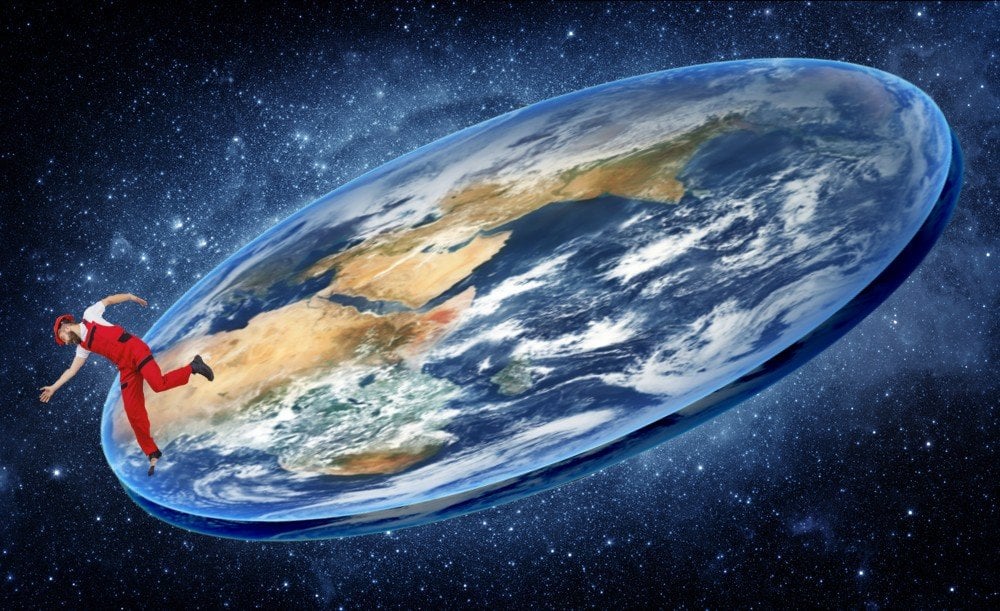
However, things would change as you moved away from the center, i.e., towards the edge of the disc. Gravity would skew slightly, and as you continued to move away from the center, you would be pulled at a greater and greater angle towards the center. Buildings and other architectural structures far from the center would not appear as they do to us now; instead, they would be oriented in such a way that their bases would align with the center of the disc. For better clarity on this, take a look at this picture.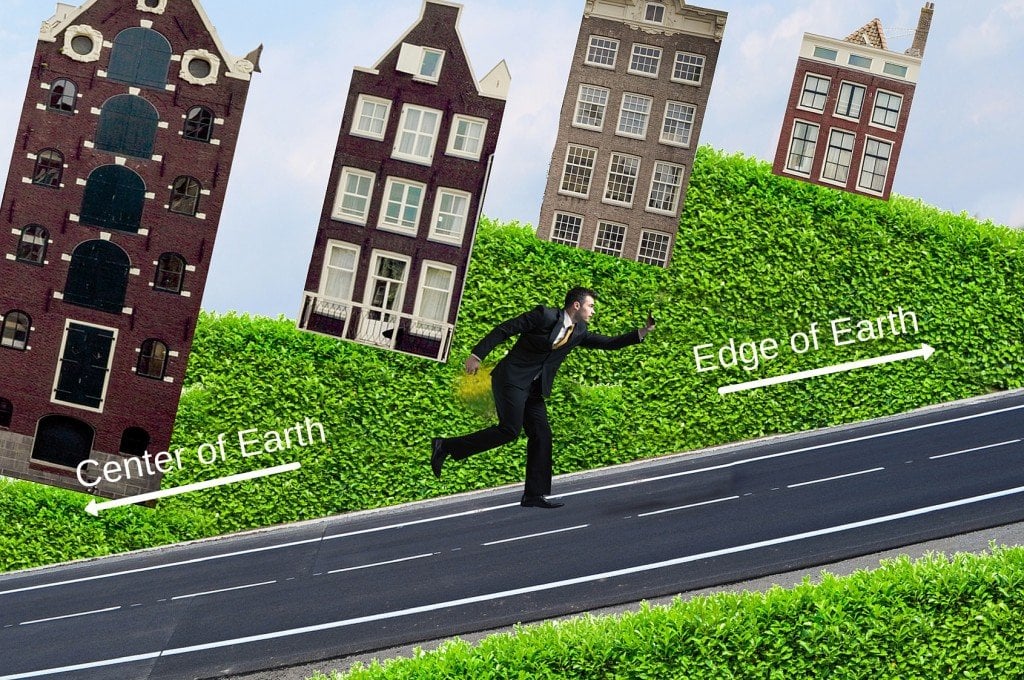
If you were to go jogging, you would feel more and more exhausted as you jogged towards the edge, because by doing that, you would essentially be distancing yourself more and more from the center of the disc. As you move towards the edge Earth’s gravity would skew towards the center, pushing you more and more towards it, hence the exertion. Think of how winded up you feel after walking or running uphill; it’ll be similar to that.
Now, coming back to the question posed in the title of this article; would you fall off once you’ve (after a lot of exertion!) reached the edge and chosen to continue your jog?
Absolutely not! In fact, you’d be pleased once you reached the edge, because as soon as you stepped over the edge, you’d reach the face of the disc that’s oriented in a way to make you feel exactly as you normally do on a spherical Earth.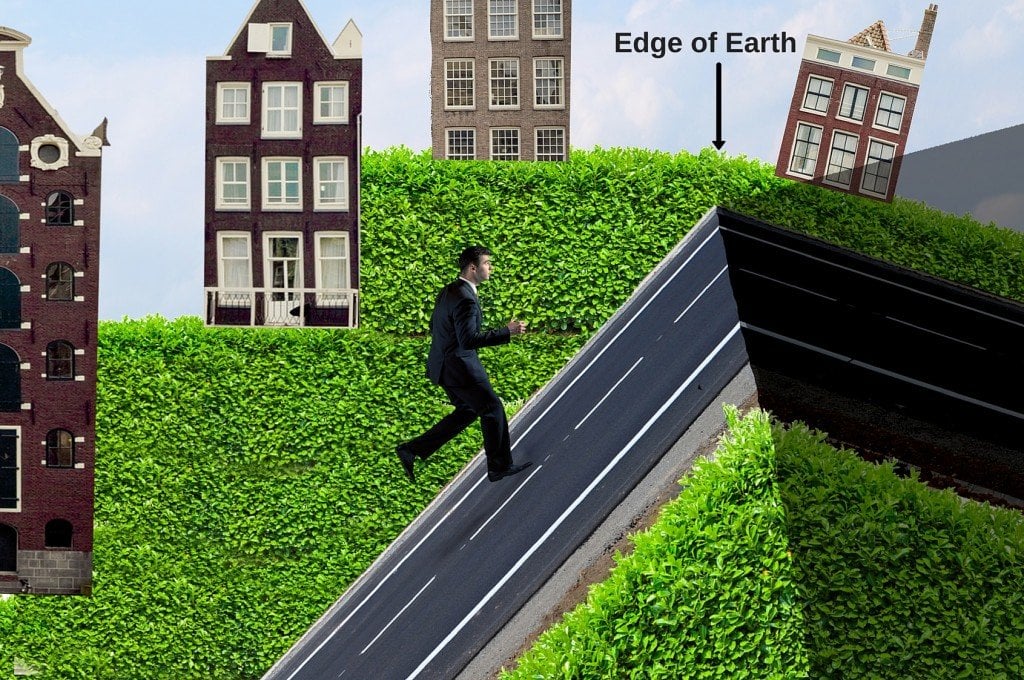
Jogging on that surface would be much more comfortable, especially after all that exertion! Furthermore, you wouldn’t fall off into space, as gravity would still continue to ‘ground you’.
Since this is a purely hypothetical scenario that requires a lot of abstract visualization on your part, make sure to check out this VSauce video. This will help you gain a more comprehensive understanding, with the help of the cool simulation of a man jogging towards the edge of a flat Earth.


